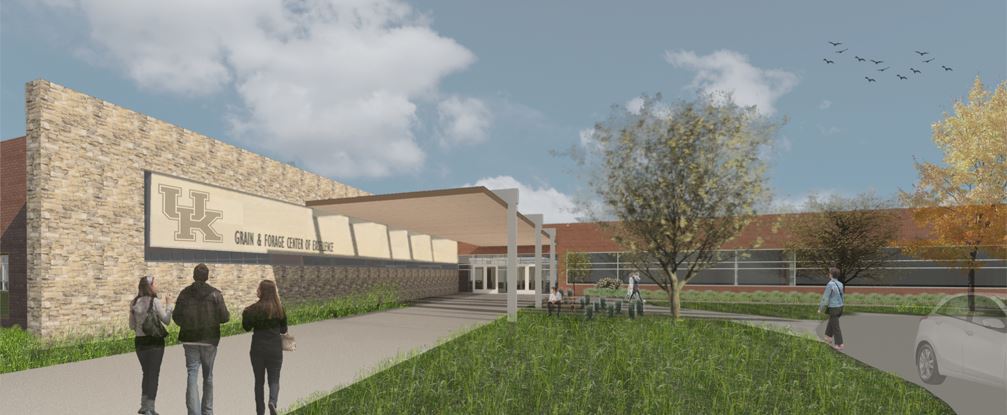Grain and Forage Center of Excellence
By Katie Pratt, the 2017 mAGazine
Artist's illustration of new Center.
Like generations of Kentucky producers, Hodgenvile farmer Ryan Bivens, '01, has relied on CAFE experts to help him make unbiased decisions to improve his grain operation. He sees the Grain and Forage Center of Excellence as an important way UK can help producers solve new challenges.
Chad Lee, director of the UK Grain and Forage
Center of Excellence
"We are sitting on a golden opportunity," he said. "The center will allow UK scientists to do more intensive research on production agriculture. It will not only be an asset to Kentucky farmers, but it will prove invaluable for farmers in many different states."
His feelings are echoed by many Kentucky producers, commodity groups, and legislators. Their support encouraged the Kentucky Agricultural Development Board to partially fund the center with a $15 million grant. UK must provide matching funds within five years. The college has launched a fundraising campaign to do so.
"Moving forward, growers will continue to play an important role in helping us shape the center's vision and mission into something that producers across the region can look to for real-world answers," said Chad Lee, the center's director.
Researchers and extension specialists will be tasked with improving grain and forage production in a way that sustains the environment and family farms. Center faculty primarily will be housed at the Research and Education Center in Princeton.
Potential research projects include warm-season grasses, irrigation systems, crop stress management, and water quality monitoring. Lee said the research will focus on local challenges, but he expects some projects will have regional, national, and international implications.
Such research will be critical for the future success of farms across the region.
"With agriculture changing at such a fast pace and the challenge placed upon today's farmer to increase production and efficiency, the need for a center like this is more important today than ever before," Bivens said.


